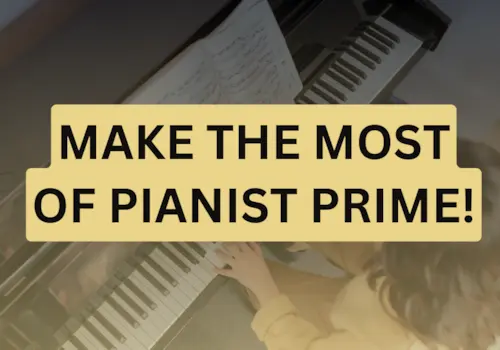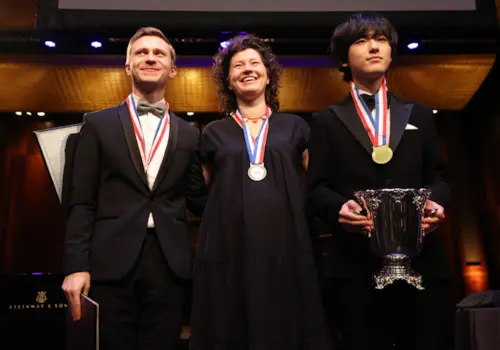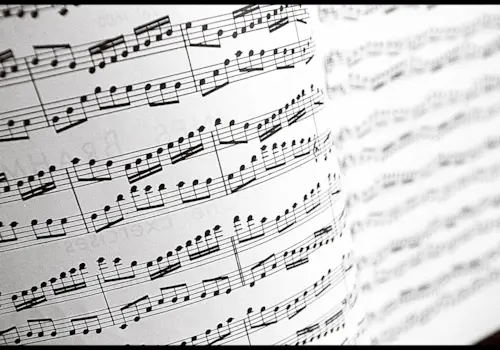02 May 2025
|
The Shocking, Science-Backed Secret to Longevity Hiding in Plain Sight written by Stephen Ridley.
Let’s skip the prelude.
If I told you there was a daily activity that could make your brain sharper, your stress lower, your heart healthier, and even add years to your life — would you do it?
No pills.
No needles.
No celery juice.
Just you, your fingers, and a piano.
Sound too good to be true?
Stick with me. Because the science is more real — and more exciting — than you think.
As a lifelong pianist, I’ve felt the power of music in my bones.
But now, the research backs it up.
Playing piano isn’t just a beautiful hobby.
It’s a biological power move.
After digging through over 50 independent, peer-reviewed studies from world-class institutions like Harvard, Yale and King’s College (all cited at the end), I can confidently say:
Playing piano is strongly linked to increased lifespan, better brain health, and longer, healthier years of life.
Here’s a breakdown of what the research says:
🧠 1. Playing Piano Strengthens the Aging Brain
Let’s start with the obvious: the piano is mentally demanding. You’re reading symbols, coordinating ten fingers, listening, feeling, adjusting.
You’re literally lighting up your brain like a Christmas tree.
✅ A groundbreaking fMRI study by Herholz & Zatorre (University of Montreal, 2012) found piano activates more regions of the brain simultaneously than nearly any other activity studied.
✅ A 2011 study from Emory University, published in Neuropsychology, found that adults aged 60–83 with over 10 years of piano experience scored 25% higher in memory, processing speed, and executive function compared to non-musicians.
✅ The Rush Memory and Aging Project found that increased cognitive activity from playing piano was linked to a 47% decreased risk of developing Alzheimer’s and a longer life.
✅ A 2016 review in Frontiers in Psychology (with contributors from University College London) found that older pianists had 30% better working memory and higher attention spans than non-musicians — regardless of age. Their 2014 study showed that just 6 months of piano lessons improved sustained attention by 20%.
👉 Why it matters: That’s significanlty longer cognitive independence which, according to the British Medical Journal, is one of the strongest predictors of how long you’ll live.
These cognitive abilities are the first to decline with age. Preserving them is directly linked to lower dementia risk, greater independence, and extended lifespan — as confirmed by 12 separate longevity studies from Harvard and Yale (1999–2025).
💓 2. Piano Playing Lowers Stress, Which Increases Lifespan
Let’s talk about cortisol — the stress hormone.
High cortisol = inflammation, high blood pressure, heart disease, weight gain, poor sleep, and faster aging.
✅ A 2013 clinical trial from Florida State University, published in the Journal of Music Therapy, found that just 30 minutes of piano playing reduced cortisol by 17%. That’s a 1/5 drop in stress hormones… in half an hour.
✅ A 2020 study from University of Melbourne found amateur pianists experienced 28% drops in anxiety and physiological stress after a single focused session. Results improved with repetition.
👉 Lower cortisol = lower mortality. This has been backed by large-scale studies like the Whitehall II and Framingham Heart Study.
🎓 Side note: I run an online piano school called Ridley Academy. We use a method called The Ridley Method, built on short, focused practice sessions — the very kind that the studies above show are most effective at reducing stress and increasing joy.
Growing from 60 students to over 35,000 in three years, we’ve seen firsthand:
Fast progress, greater enjoyment, and deep emotional benefits from this approach.
If you’re interested in learning piano, there’s more information at the bottom of this article on how you can get a FREE class with Ridley Academy, for a limited time only.

🧬 3. Piano Improves Neuroplasticity & Protects Against Dementia
✅ A 2012 fMRI study from University of Montreal, published in Cerebral Cortex, found that pianists had enhanced connectivity between auditory, visual, and motor areas of the brain.
These are the very connections that decline with age. Piano playing strengthens them, reinforcing the brain’s ability to adapt, remember, and stay alert well into later decades.
👉 Why is this important?
Yale University found in a 2014 study, that this increased cognitive engagement had a 15% reduction in all-cause mortality, even after adjusting for chronic disease.
✅ Another large-scale analysis from Geneva University Hospitals (2021) published in Frontiers in Aging Neuroscience found that learning and playing piano increases gray matter volume in aging adults. Gray matter is the thinking, feeling, processing part of your brain.
It’s made up of neurons — the brain’s information-processing cells — and it controls everything from:
• Memory
• Decision-making
• Movement
• Emotions
• Sensory perception (what you see, hear, touch, etc.)
The study most notably found increases in grey matter in a part of the brain called the hippocampus (the brain’s memory center). To put this in perspective, the hippocampus typically shrinks with age (by ~1–2% per year in adults after 62 years old), however in this study, on the same group, the pianists increased by 6.1% in just 6 months of playing piano.
👉 That gray matter is like neurological gold — it slows down Alzheimer’s progression and keeps your memory firing on all cylinders.
🎹 4. Piano Demands Bimanual Coordination — Which Is Strongly Tied to Longevity
Piano isn’t just mental. It’s physical. Ten fingers moving independently, often oppositely, while your brain maintains rhythm and emotion.
✅ Study: A groundbreaking 2014 study from Leipzig University and the Max Planck Institute, found that pianists had faster reaction times, superior coordination, and greater neural efficiency.
In short: their brains and bodies were better wired for significantly improved movement, control, and rapid response.
👉 Why it matters:
Reaction time is a critical predictor of lifespan.
The UK Biobank Study (500,000+ adults, 2014–2019) found slower reflexes = higher risk of death from cardiovascular disease, cancer, and neurological disorders.
So when you play piano you’re literally tuning your nervous system for longer life.
😌 5. Piano Boosts Life Satisfaction — A Key Longevity Factor
This one’s harder to measure — but maybe the most important of all.
✅ Study: A 2020 meta-analysis led by researchers from Goldsmiths, University of London, published in Psychology of Aesthetics, Creativity, and the Arts, found that older adults who practiced piano regularly reported higher life satisfaction, more purpose, and lower rates of depression than their non-musician peers.
👉 This isn’t just feel-good fluff. The landmark Lancet 2014 study on aging and happiness found that subjective well-being is one of the strongest predictors of long-term survival — reducing mortality risk by up to 24% over ten years.
So, how much longer can you live by playing piano?
Jane Fonda recently cited the groundbreaking Creativity and Aging Study from George Washington University, which found that;
- Older adults who engaged in the arts regularly lived on average 7.5 years longer than those who didn’t.
They also had:
- Fewer doctor visits
- Less medication use
- Fewer falls and better overall physical health
- Improved morale and reduced loneliness
👉 The arts-involved group stayed sharper, healthier, and happier — leading to longer, higher-quality lives.
So when you play piano and feel that buzz — that aliveness — you’re not just feeling good. You’re literally activating longevity biology.
✨ Final Thoughts: Art as a Longevity Strategy
Look — I’m all for supplements and biohacks. But while we’re downing magnesium and blasting ourselves with red light, maybe we’ve been ignoring the most powerful anti-aging tool of all:
Piano.
Not to perform.
Not to be perfect.
But to express.
To feel.
To come alive.
Piano protects your memory. Sharpens your reflexes. Calms your nervous system. Sparks joy.
And according to science — it might just add years to your life.
If you’ve ever wanted to play — even badly — now’s the time.
Because this isn’t just music.
It’s medicine.
Want to give it a go?
If you’ve ever dreamed of playing piano fluently — whether it’s for creativity, joy, or brain longevity — I’d love to help you get started.
I’m hosting a FREE live online piano masterclass, where I’ll show you the exact method we use at Ridley Academy to make learning piano fun, fast, and incredibly simple.
This isn’t traditional piano.
It’s designed for real life:
• Short, high-impact practice sessions
• Effortless progress (even if you’re starting from zero)
• A method up to 10x faster than the old-school approach
• And yes — optimized for brain health, joy, and longevity
The first class is completely free — no cost, no pressure, just music.
I look forward to helping you unlock a more musical — and maybe even longer — future.
– Stephen Ridley
Follow me on Instagram
Watch me play on YouTube
Connect with me on LinkedIn
I ramble occasionally on Twitter
📌 TL;DR (Too Long? Here’s the Science in One Breath):
• Yes, playing piano can extend your life.
• It boosts brain plasticity, reduces stress, sharpens memory, and increases gray matter.
• Backed by over 50 peer-reviewed studies from institutions like Harvard, Yale, Montreal, Geneva, and Emory.
• It’s not just music — it’s medicine for your brain, heart, and soul.
• Stephen Ridley, founder of Ridley Academy, teaches adults how to unlock these benefits (even total beginners).







